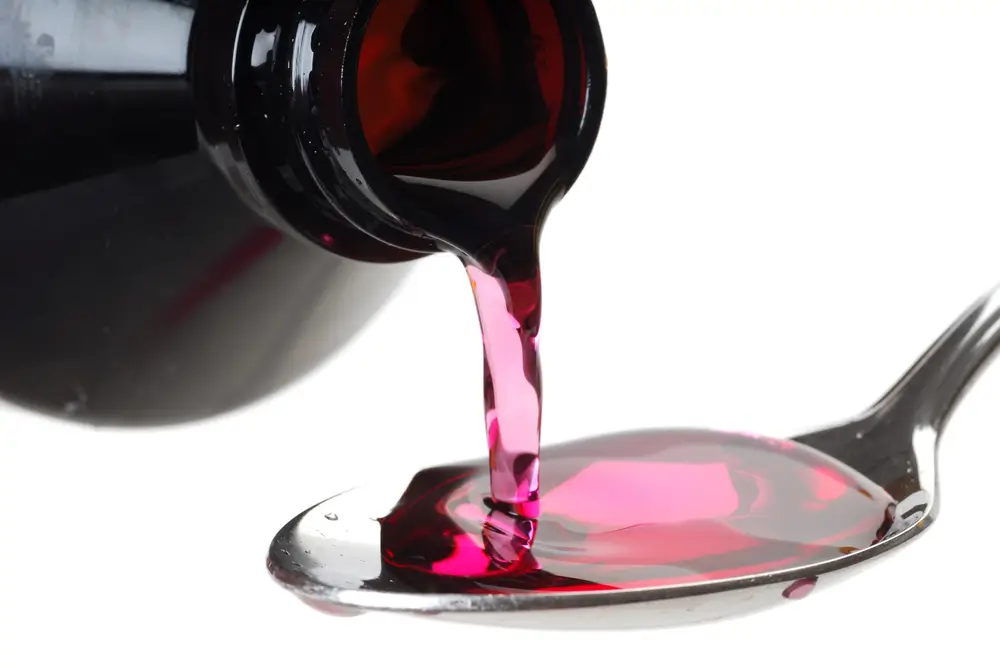Teenagers and adolescents often exercise poor judgment when they experiment, which includes using drugs and alcohol. Parents often look for signs that their child is drinking or doing drugs. What many moms and dads overlook is a potentially addictive concoction made from easily obtained sources. Lean addiction in youth is a widespread problem, making it important for parents to look for signs that their child may be suffering from it.
What Is Lean?
Lean is a drink made from prescription-strength cough syrup (which contains codeine and promethazine) and soda. Also known as sizzurp, purple drank, and dirty sprite, lean has become a popular way for young people to become inebriated on easily found ingredients. Many teenagers and young adults drink lean in social situations, such as parties, as well as on their own.
Because cough syrup often comes in a variety of flavors meant to disguise the taste of medicine, when it’s mixed with the type of soda they enjoy, many people find it to be an easy-to-drink, tasty beverage. Some people mix the concoction with gummy candies or candies such as Jolly Ranchers, creating the temptation of a candy-like taste with the very adult effects of a drug.
How Does Lean Make You Feel?
The effects of lean can vary from person to person, but typically, it produces a sense of euphoria, relaxation, and detachment from reality. Users may also experience blurred vision, slurred speech, and impaired motor coordination. However, the drug can also cause anxiety, agitation, and paranoia in some people.

Lean’s Dangerous Side Effects
Lean consumption can lead to a number of serious health complications, such as liver and kidney damage, nausea, vomiting, and increased risk of stroke. It is important to understand the risks associated with consuming lean, and to be mindful of one’s health if taking part in this activity. The following are common health risks associated with lean use:
Sedation
Codeine is an opioid that is known to cause drowsiness and sedation when taken as a cough syrup. These effects can be even more pronounced when combined with another sedative such as promethazine, which is also found in certain cough syrups. It is important to remember that although these medications may have their benefits, they can also cause adverse reactions if not taken as prescribed by a physician.
Respiratory Depression
The combination of codeine and promethazine in lean can cause a person’s breathing to slow down drastically. This can lead to dangerous health complications and even death, as slowed breathing can become life-threatening. It is important for individuals to understand the risks associated with taking lean and to be aware that it can have potentially deadly effects.
Organ Damage
Lean has a plethora of negative effects on the human body, ranging from organ damage to an increased risk of stroke. Consuming Lean can cause extensive damage to the kidneys, liver and stomach, leading to numerous health concerns. These organs are essential for overall health, as they are responsible for detoxifying and filtering the body of impurities and foreign substances.
Mental Health Issues
Mental health has been found to be significantly impacted by the use of lean. Not only can it lead to depression, but it can also cause psychosis, a serious mental disorder characterized by hallucinations and delusions. It is crucial for teenagers to be aware of the risks associated with drinking lean, as the physical and mental dangers can be long-lasting and potentially irreversible.
Slowed Heart Rate
The combination of codeine and promethazine in lean can slow the body’s heart rate, especially in high doses or when taken with other drugs that also slow down the central nervous system. This effect can be particularly dangerous for individuals with pre-existing heart conditions, as it can exacerbate their condition and lead to serious health consequences.
Seizures
Seizures are mainly caused by abnormal electrical activity in the brain. When codeine is taken in high doses or used over a long period of time, it can change the way the brain functions and disrupt the normal balance of neurotransmitters, which are chemicals that transmit signals between nerve cells. This disruption can lead to a buildup of electrical activity in the brain, which can trigger a seizure.
Can All Cough Syrups Be Turned Into Lean?
No, not all cough syrups can be turned into lean. Lean is made specifically with prescription-strength cough syrup that contains both codeine and promethazine. These cough syrups are typically available only with a prescription from a healthcare provider.
It is important to note that the non-medical use of prescription cough syrup, such as for making lean, is illegal. Other over-the-counter cough syrups or medications may contain different active ingredients that can be harmful or even fatal when used in high doses or combined with other substances.
- Dextromethorphan (DXM): DXM is a cough suppressant that is often used in over-the-counter cough syrups. In very high doses, DXM can cause hallucinations, dissociation, and other psychoactive effects.
- Guaifenesin: Guaifenesin is an expectorant that is used to loosen mucus in the airways. Drinking large amounts of cough syrup containing guaifenesin can cause nausea, vomiting, and stomach pain.
- Phenylephrine: Phenylephrine is a decongestant used to reduce nasal congestion. Drinking large amounts of cough syrup containing phenylephrine can lead to high blood pressure, rapid heartbeat, and other cardiovascular effects.
- Chlorpheniramine: Chlorpheniramine is an antihistamine that is used to treat allergies and cold symptoms. Drinking large amounts of cough syrup containing chlorpheniramine can cause drowsiness and dizziness.
What is “Robotripping”?
The term “robotripping” is used to describe the practice of taking cough suppressants, like codeine, found in many over-the-counter cold and cough medicines, for recreational purposes. When ingested in large amounts, it can create the same types of effects as opioids, such as euphoria, drowsiness, and altered awareness. But it can also be hazardous and can cause a variety of side effects, including hallucinations, rapid pulse, high blood pressure, and in extreme cases, even unconsciousness or fatality.

Why Lean Addiction in Youth Has Become a Problem
Young people in search of ways to achieve the feeling of being drunk or high often find it difficult to procure a lot of substances. The minimum legal age to purchase or consume alcohol in the U.S. is 21, which throws up a roadblock for many teenagers. While illegal narcotics often find their way into the hands of young people, many kids do not have access to them, cannot afford them, or fear the repercussions of taking them.
Lean addiction in youth can come about because teenagers believe the ingredients can’t be harmful. Most bathrooms have a bottle of cough syrup and they can be purchased at any pharmacy or grocery store. Sodas are available everywhere and are a favorite drink of young people. This fosters a false belief that combining the two probably won’t be harmful.
Cough syrup that contains codeine provides the effect of relaxing the person consuming lean, and when used in excess, it can cause the sensation of being drunk or high. In addition, lean usage is promoted in certain celebrity circles, including in the rap music community, which can lead to gullible teens imitating them.
Addiction to lean can happen quickly, compounded by the fact that young people lack the life experience to understand when they are in over their heads. Many continue to drink lean, not realizing they may be setting themselves up for a serious and deadly result.
Who is Most At-Risk For Using Lean?
It is possible for anyone to become dependent on drugs or alcohol since these substances influence the brain and body similarly for every individual. Scientists are still unable to conclusively determine who will or won’t become addicted to a specific drug. Nevertheless, there are a few recognized risk factors that raise the likelihood of a person getting hooked on lean:
- Poverty
- Lower education level
- Family history of substance abuse
- Mental health disorders
- Idolizing the hip-hop community
- Environment where substance abuse is accepted
Symptoms of Lean Addiction in Youth
The cough syrups used when making lean contain codeine, which is derived from the opium plant and has great potential for becoming addictive. What may start as fun, youthful experimentation can turn into an addiction that requires professional treatment.
Cough syrup with codeine is meant to be taken in minor dosages, only for medicinal reasons, and just for the short-term. Young people who consume lean often drink it in copious amounts that are many times higher than is safely recommended. This puts them in jeopardy of dangerous side effects and even overdosing.
Symptoms to look out for if you are worried that your child may have developed an addiction to lean include:
- Slow heart rate
- Slow breathing
- Dizziness
- Slurred speech
- Difficulty walking
- Constipation
- Loss of memory
- Impaired vision
- Dental damage
- Seizures
- Hallucinations
Parents should also be aware of requests to buy excessive amounts of cough syrup, bottles of syrup going missing in the house, and empty bottles found hidden in the home or trash.

What To Do if Your Child Has Become Addicted to Lean
The sooner a person with an addiction to any substance gets help, the better, and this includes lean addiction. By the time addiction has taken hold, your child will need professional help to detox from the codeine and begin recovery.
Some kids benefit from residential treatment, which involves living in a treatment center, while others do well in other types of programs. Non-residential programs, called outpatient, include regular outpatient programs, intensive outpatient, and partial hospitalization. These programs require varying amounts of time, from a couple of days a week to five days a week.
Whether your child enters residential or outpatient treatment for lean addiction, they will receive a variety of treatment modalities that set them up for success in their sobriety. Treatment can include individual therapy, group therapy, medication-assisted treatment, holistic therapy, and other options. Many programs offer alumni support and help guide young clients toward success in their return to schooling and looking for work.
Treatment for Lean Addiction
When someone is addicted to lean, their body has adapted to the substance and will need to go through detoxification. The withdrawal signs can be both psychological and physical and attempting to quit without the help of a specialist often fails. A professional rehab program will give all-day, every day backing to help lessen and assuage the withdrawal symptoms, making it more probable for the user to finish the detox cycle effectively. Numerous individuals decide to go for an outpatient therapy program instead of an inpatient program or as an afterstage of an inpatient program. Outpatient therapy offers the required structure and assistance during the day while permitting the person to return to their home during the night.
Evidenced-based treatments, such as cognitive and dialectical behavior therapy, have been found to significantly enhance the chances of successful recovery. In addition to individual counseling, both group and family therapy sessions can help an individual gain a better understanding of their own addictive behaviors and what it takes to move forward. Many inpatient treatment centers provide holistic therapies, such as yoga, acupuncture, art therapy, and aquatic activities, as well. This type of therapy helps to create healthy methods of coping and reduce stress, which is often absent in the lives of people who have just begun on their path to sobriety.
Treatment for Lean Addiction in Youth in Los Angeles
If you’re the parent of a child with an addiction to lean, we can help. Our detox and outpatient programs offer the skilled care needed for addressing lean addiction in youth. Our treatment plan helps young people become sober, address any co-occurring mental health issues, and prepare for success in their schooling and career goals. We include family therapy and parental coaching so the entire family can help their loved ones reach their full potential. Contact Launch Centers in Los Angeles today and get help for your child before it’s too late. Call us at 424-526-5339.





